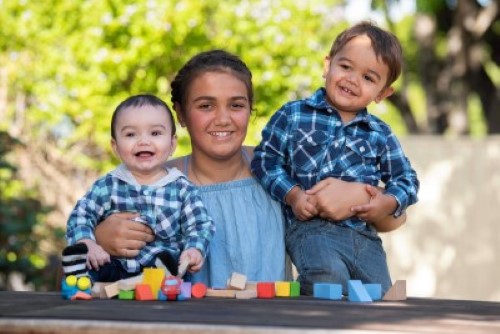Search

A new partnership between The Kids Research Institute Australia, Dr George Sim and St John of God Murdoch Hospital will offer essential surgery at no cost for a group of Aboriginal children suffering severe ear infections.
Chronic suppurative otitis media (CSOM), sometimes referred to as chronic otitis media (COM), is a chronic inflammation and often polymicrobial infection (involving more than one micro-organism) of the middle ear and mastoid cavity, characterised by ear discharge (otorrhoea) through a perforated tympanic membrane. The predominant symptoms of CSOM are ear discharge and hearing loss. Antibiotics are the most common treatment for CSOM, which act to kill or inhibit the growth of micro-organisms that may be responsible for the infection.
Video otoscopy plays an important role in improving access to ear health services. This study investigated the clinician-rated quality of video otoscopy recordings and still images, and compared their suitability for asynchronous diagnosis of middle-ear disease. Two hundred and eighty video otoscopy image-recording pairs were collected from 150 children (aged six months to 15 years) by an ear, nose, and throat (ENT) specialist, audiologists, and trained research assistants, and independently rated by an audiologist and ENT surgeon.
The majority of Australian Aboriginal and Torres Strait Islander (hereafter referred to as “Aboriginal”) people live in urban centres. Otitis media (OM) occurs at a younger age, prevalence is higher and hearing loss and other serious complications are more common in Aboriginal than non-Aboriginal children. Despite this, data on the burden of OM and hearing loss in urban Aboriginal children are limited.
Chronic suppurative otitis media (CSOM), sometimes referred to as chronic otitis media (COM), is a chronic inflammation and often polymicrobial infection (involving more than one micro-organism) of the middle ear and mastoid cavity, characterised by ear discharge (otorrhoea) through a perforated tympanic membrane.
Reflections and perceptions of chronic tinnitus during childhood
Advances in understanding bacterial dynamics in the upper airway microbiome are driving development of microbiota-modifying therapies to prevent or treat disease
There is insufficient evidence available to determine whether these organisms are pathogens, commensals or contribute indirectly to the pathogenesis of OM
The effectiveness and safety profile of antiseptics in the treatment of chronic suppurative otitis media is uncertain
The longitudinal analyses found no evidence of increased (or decreased) long-term risk of ear infections in subsequent waves associated with attending a child care centre
